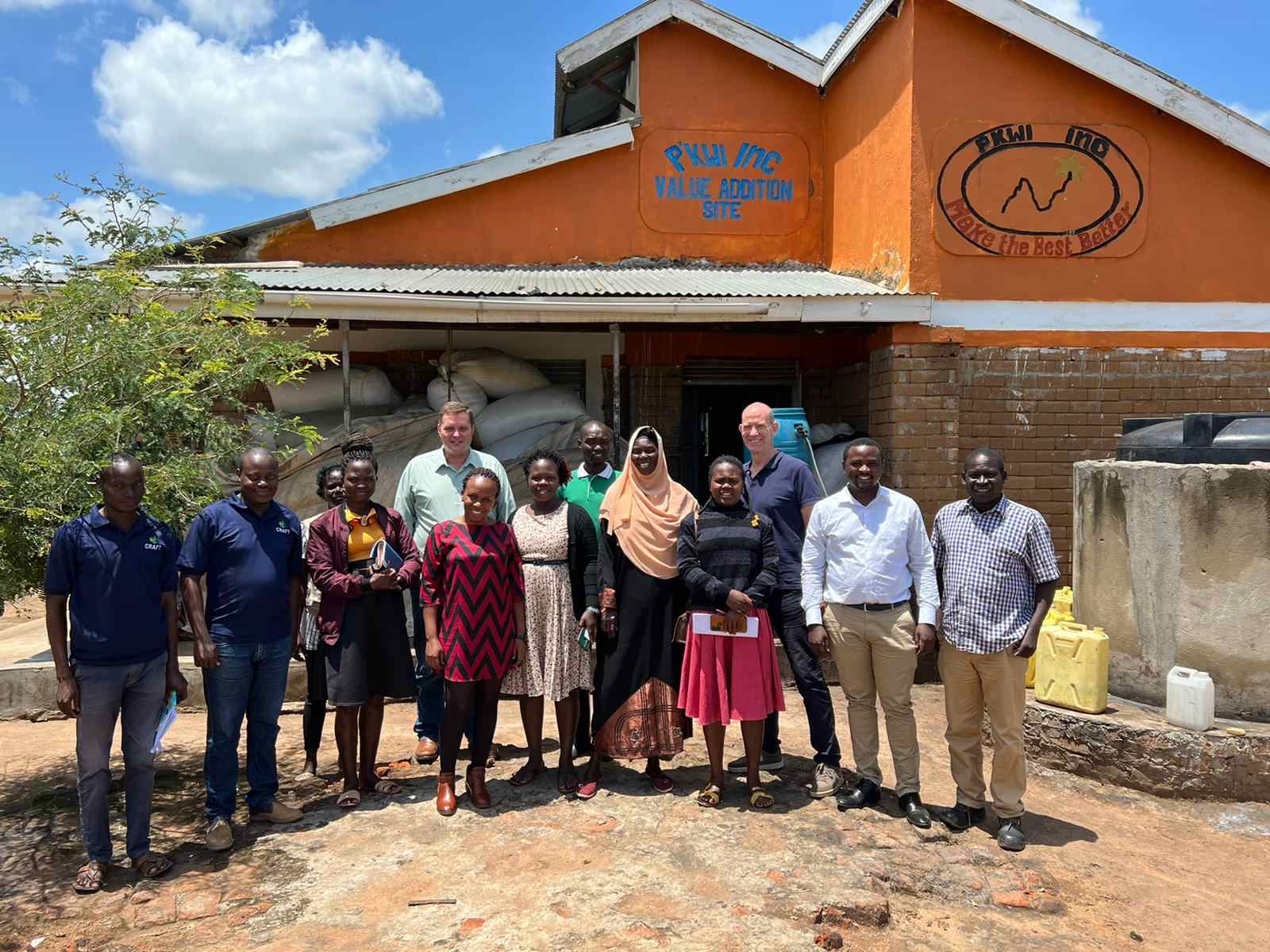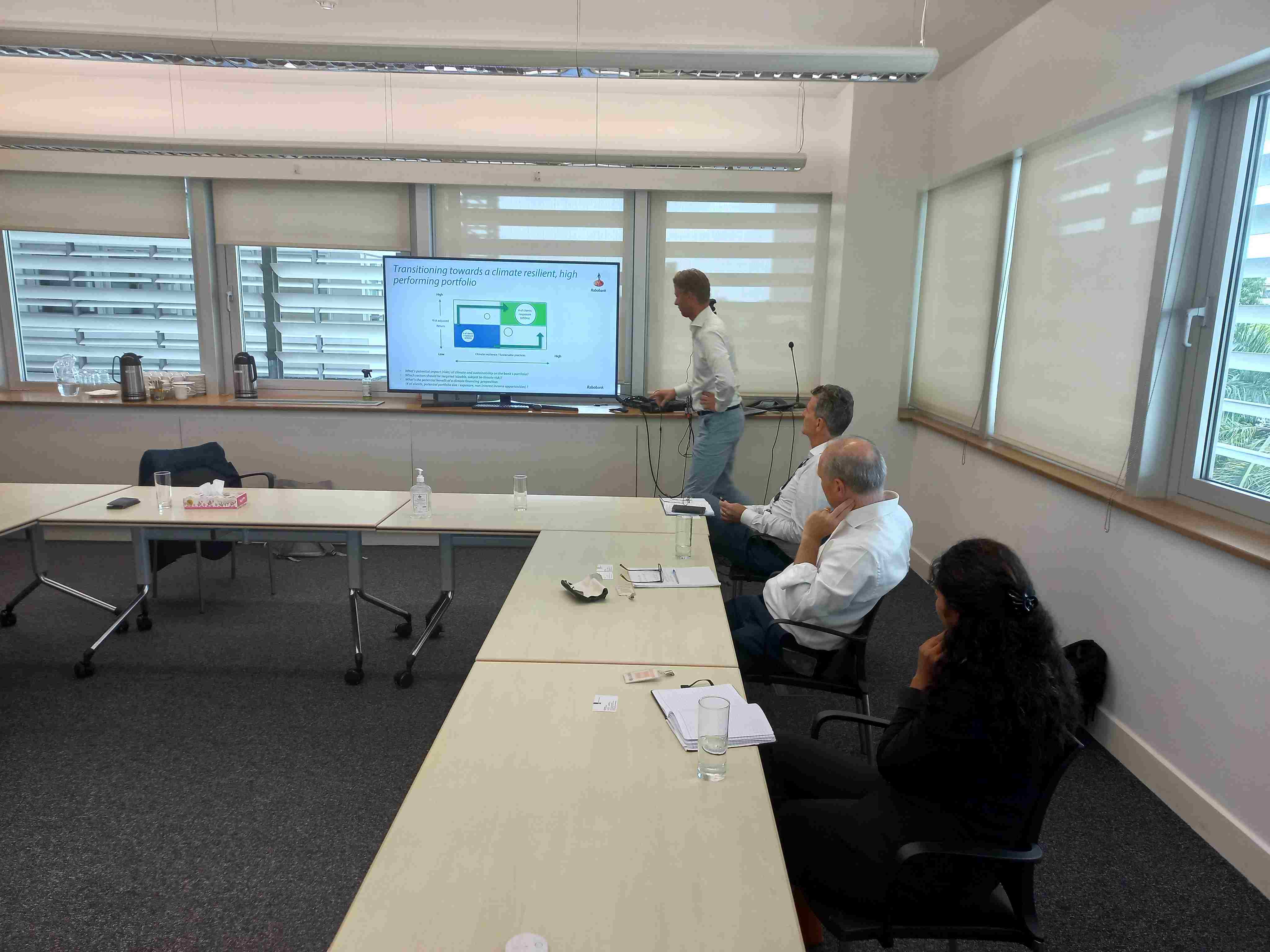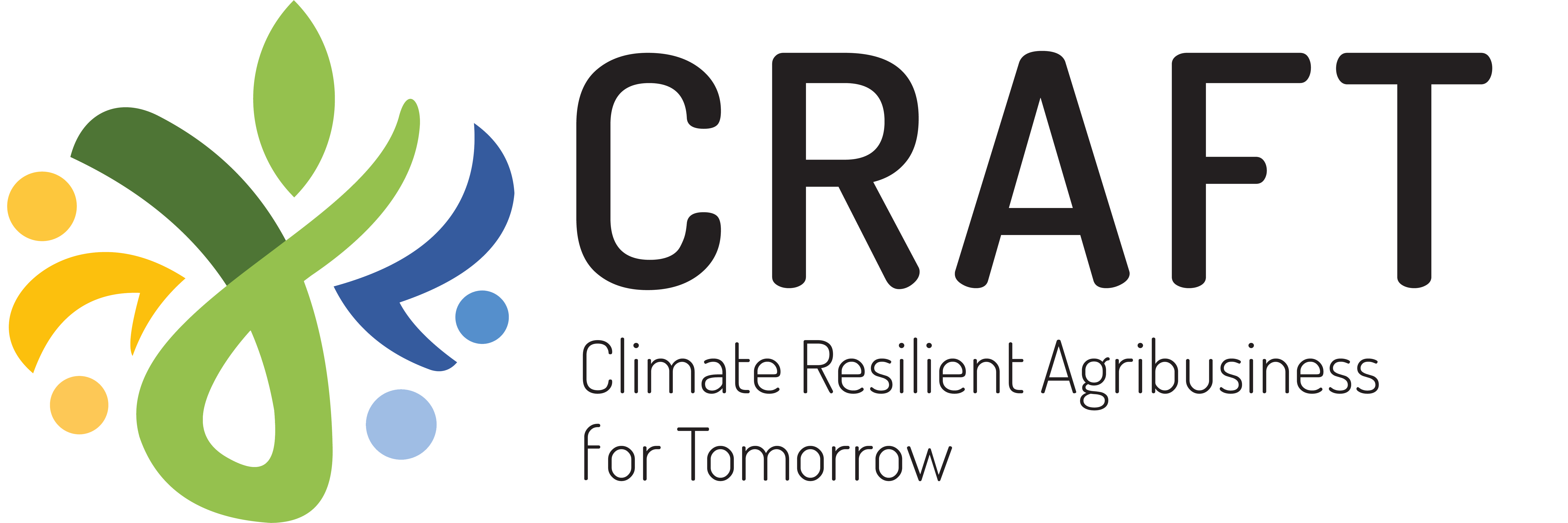Rabo Partnerships (Rabo), under Climate Resilient Agri-businesses For Tomorrow (CRAFT’s) project and as a consortium partner, works and supports local FIs in Kenya, Tanzania, and Uganda to build solid climate smart product propositions – tailored to the needs of food and agribusiness entrepreneurs to transit to a more climate resilient business model.
“If we want to create lasting impact, it’s critical for local financial institutions to pick up – and institutionalize access to finance for investments of farmers and other players in the food and agribusiness value chain. This will enable climate-smart investments such as irrigation, procuring resilient seeds and construction of cold storage warehouses that address post-harvest losses,” Harrie Schaap – The head of Data & Analytics for Rabo’s Transformation for Food & Agri business.
As part of the projects intervention strategy to increase climate smart investments in inclusive value chains, Rabo works on pathways for facilitating and streamlining access to finance for agri-SMEs and small holder farmers to enable sustainable implementation of climate adaption strategies.
How does Rabo do that?
Based on actionable insights on climate change delivered in collaboration with Wageningen University & Research and a deep understanding of the value chains, Rabo supports local FIs to understand how climate change will affect their loan portfolios, as well as the available opportunities to provide loans.
This enables farmers and agri-SMEs to invest in climate adaptation strategies and build resilience against climate shocks.
For instance, for one of the leading commercial banks in Uganda, Rabo delivered a Value Chain analysis and data-driven insights on the impact on climate change for the sunflower value chain - and their clients active in this sector. “We helped this bank understand how climate change will affect the sunflower sector in Uganda and we supported to incorporate this information into a long-term Food & Agribusiness (F&A) Strategy,” Harrie notes.

Using that F&A strategy, banks will be able to develop a climate smart product proposition that is comfortable for them to build a healthy loan book, while addressing the needs of agribusinesses and farmers. “We support tailored product design which enables agri-SMEs become more climate resilient by investing in CSA that address climate change stresses,” Harrie notes.
From engagements with agri-SMEs, Rabo learned that Agri-SMEs and Cooperatives find challenges in accessing working capital to implement some of the CSA activities. “We learned that FIs have no product that provides working capital to cover costs like buying drought resilient seeds until the revenue from the harvest is generated. This is the biggest struggle in financing agriculture sector,” Harrie notes.
Rabo also develops climate-smart product propositions together with FIs. This involves developing a working capital solution that allows agribusinesses to invest and be productive before paying back – covering the time between sowing and receiving the proceeds of the harvest. “When farmers get irrigation equipment, they need time to learn on how to use irrigation to pay back,” he adds.
Climate smart loan proposition is an opportunity for banks to grow their loan books with healthy returns, while making a difference for society. Therefore, Rabo takes a value chain perspective that ensures that the needs of each value chain actor complement the other such as linking farmers to off-takers, and SMEs and this reduces the risks from supply perspective.
In Kenya, Rabo is bringing together farmers and their off-takers in the potato sector and to jointly create a value chain solution to provide irrigation – mitigating the risk of climate change, maintaining good yields (farmers) and securing supply of high-quality potato for off takers higher up in the value chain.
You can also read about Kenya’s Co-operative Bank commits to finance climate-smart investments in the potato value chain
Additionally, this methodology was shared on a more macro-level during at a climate-smart policy dialogue organised by CRAFT Tanzania with actors and stakeholders in the potato value chain in November 2022.

Rabo also works with third partners providing concessional funding that can de-risk the bank’s portfolio and allow to provide loans under more favourable conditions – by providing a cost premium for climate smart loans, risk mitigation for losses on climate smart products.
These climate-smart products, through cost premium, make it attractive for both local FIs and farmers to obtain them. Rabo provides linkages between local FIs with this concessional funding, such as ACELI Africa.
“Therefore, we’re creating a win-win situation for the banks and farmers: banks are incentivised as they can grow a healthy loan book with good returns, while farmers have access to finance against more attractive conditions to enhance their climate resilience” Harrie explains.
To further facilitate access to finance, Rabo also identifies and supports Agri-SMEs and Cooperatives under the CRAFT project to present their climate-smart business plans and their financial performance in a way that meets the requirements for FIs to perform the credit assessment as part of a climate smart loan application.
Rabo contributed to discussions of Climate-Smart Financing at COP27 which was one the key themes in the Food Systems Pavilion.
By Sarah Mazirwe









